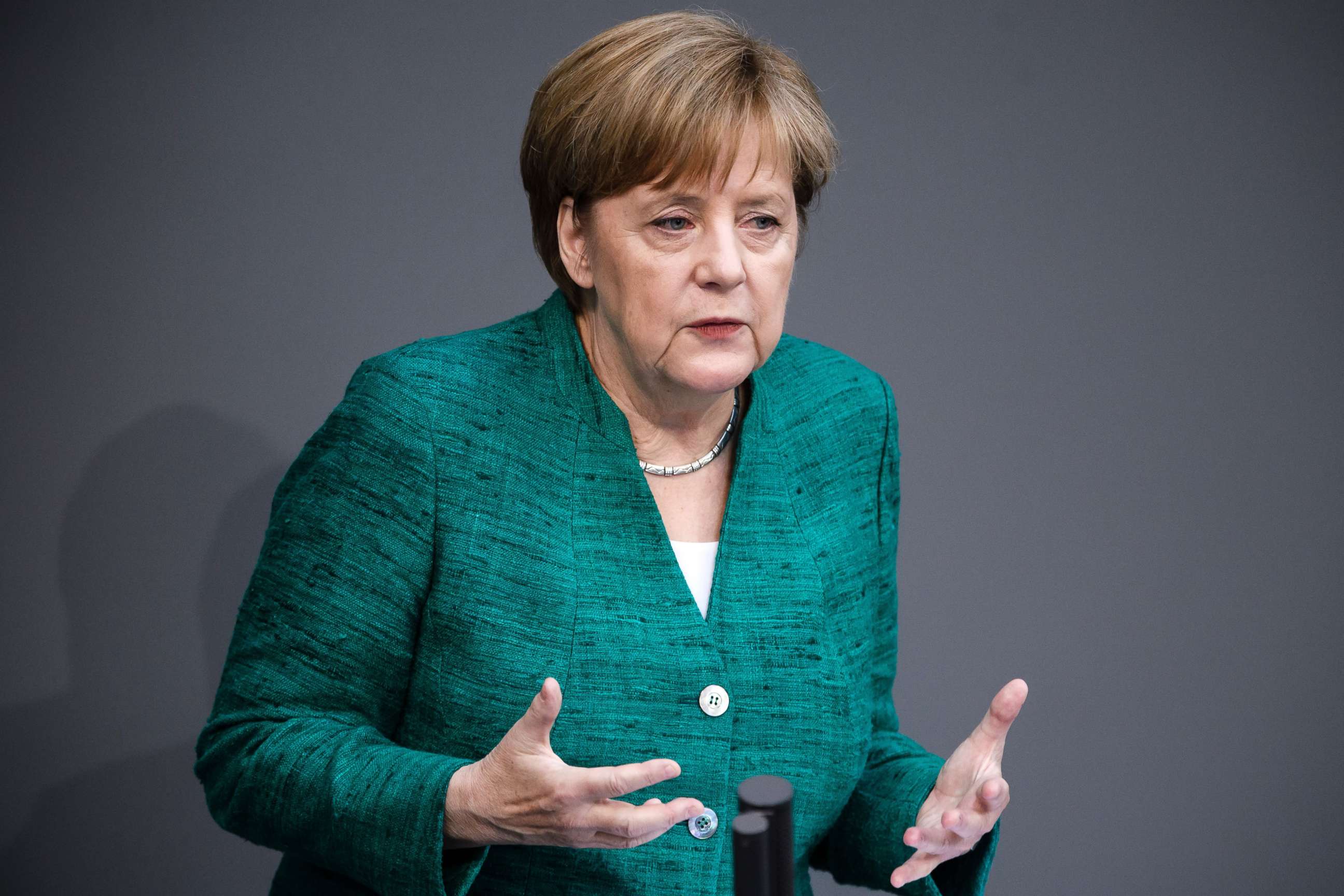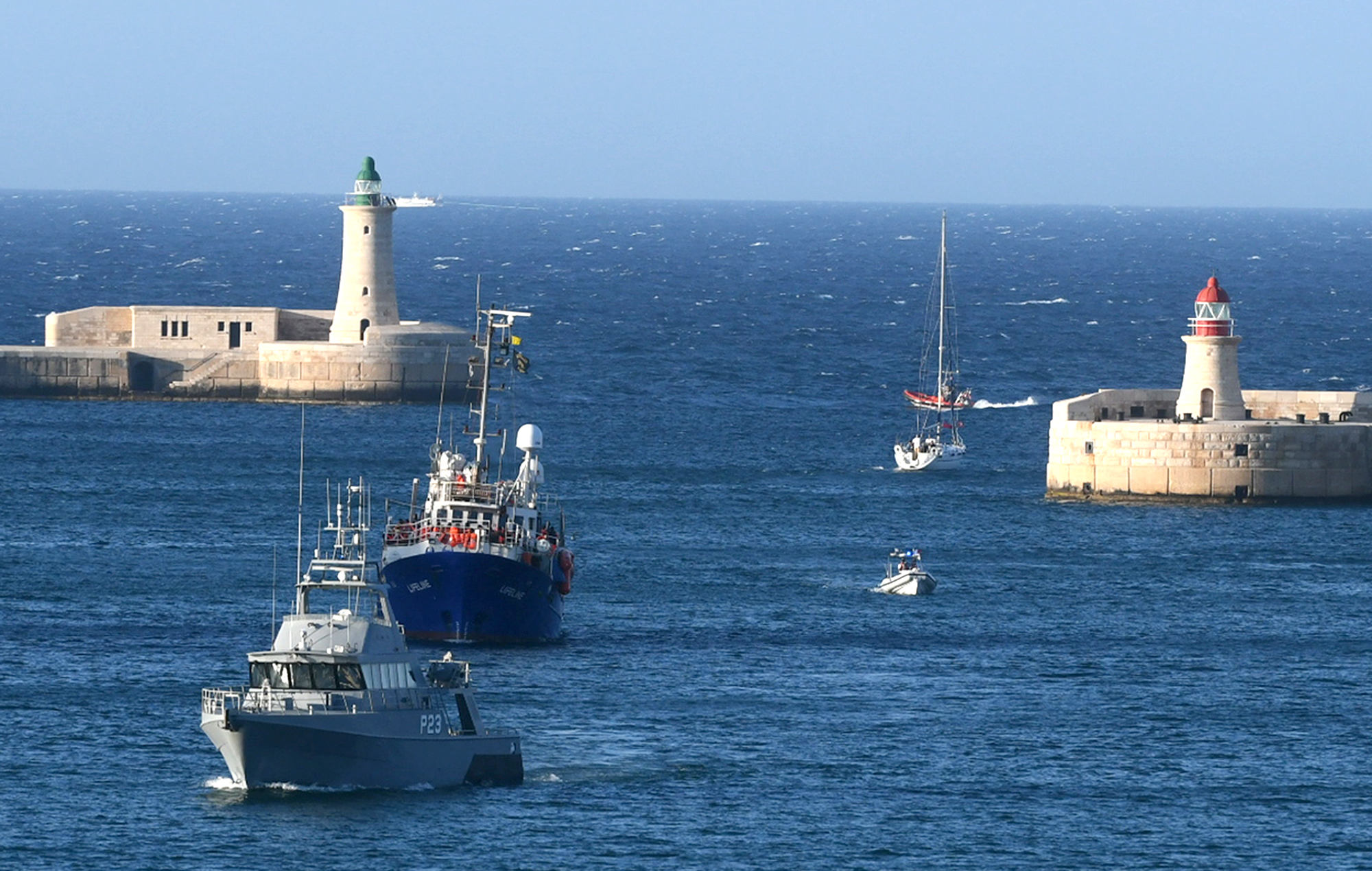Merkel works to save the EU and her career during high-stakes migration meeting
German Chancellor Angela Merkel faces one of her biggest challenges in office.
BERLIN -- German Chancellor Angela Merkel faces one of the biggest challenges of her time in office yet as she aims to reach an EU-wide agreement on migration by the end of a two-day summit in Brussels.
The pressure is on for Merkel, who in recent weeks has been threatened by German Interior Minister Horst Seehofer -- a longtime rival from Bavarian sister party Christian Social Union -- to close Germany's border with Austria to asylum-seekers previously registered in other EU countries. As interior minister, he has the power to do so but would risk being dismissed from his position by Merkel.
If Merkel does not find a solution to limit the number of refugees in Europe with other EU leaders by the end of the summit this weekend, Seehofer has threatened to block people from entering Germany's southern border, a move that could throw the governing coalition in Europe's wealthiest country into jeopardy.
Merkel is working with European partners in an attempt to hash out a plan about how to handle asylum-seekers arriving in Europe. This is a polarizing topic among European leadership; Merkel warned her parliament today: "We're not yet where we want to be."
The International Organization for Migration defines migrants as people who leave their homes to cross international borders or settle in a different place, regardless of the reason.
Refugees are recognized under international law as people fleeing violence or persecution, according to the U.N. High Commissioner for Human Rights. An asylum-seeker is a person who is applying for international protection. Merkel and other EU leaders are grappling with how to handle people who fall into all of these groups and the broader issue of migration to the EU during this summit.

So what has changed in Europe?
Under the EU's Dublin process, which is currently being debated at the summit by European leaders, asylum-seekers are required to register in the first European country they enter. But southern European countries, such as Malta and Italy, argue that this puts their countries under unfair financial strain since many more people enter there.
But the number asylum-seekers arriving in Europe is back to pre-2015 levels, according to the UNHCR, in part due to controversial agreements to keep asylum-seekers out of Europe's borders, such as the deal Merkel brokered with Turkey in March of 2016.
Yet despite these statistics, the right-wing governments of the EU, bolstered by the recent election of a populist coalition in Italy, have continued to call for a hardline EU-wide migration policy.
The effects of Italy's populist political agenda have been seen in its recent handling of migrant rescue ships trying to save people making the dangerous overseas journey across the Mediterranean from Africa.
Italian ports closed and refused to let those rescue ships dock. On June 27, Malta agreed to take the German rescue vessel, Lifeline, which had been stranded at sea for five days with 234 migrants on board, if eight EU countries agreed to process the migrants on it.
The crisis followed the dispute over the Aquarius the weekend before. The rescue ship carrying 630 migrants was finally allowed to dock in Spain on June 17 after being turned away from Italy and Malta.
Hungary's Viktor Orban has long heralded the call for increased border security. And Austria -- under conservative leader Sebastian Kurz, who took power last fall -- recently called for an anti-migration "axis of the willing" with Germany and Italy.

Joining them in restrictive stances are right-wing governments in Poland, Slovakia, and the Czech Republic.
Dr. Jana Puglierin of the German Council on Foreign Relations said the current focus on migration is indicative of a political crisis facing Europe rather than an increase in the actual number of asylum-seekers.
"The last couple of months have shown us politicians can campaign on this ticket easily," Puglierin told ABC News, adding that Seehofer is using a page from this playbook in advance of Bavarian elections in October. "I think he uses this because it’s still a very polarizing topic in German society even though the numbers [of people arriving] are down."




